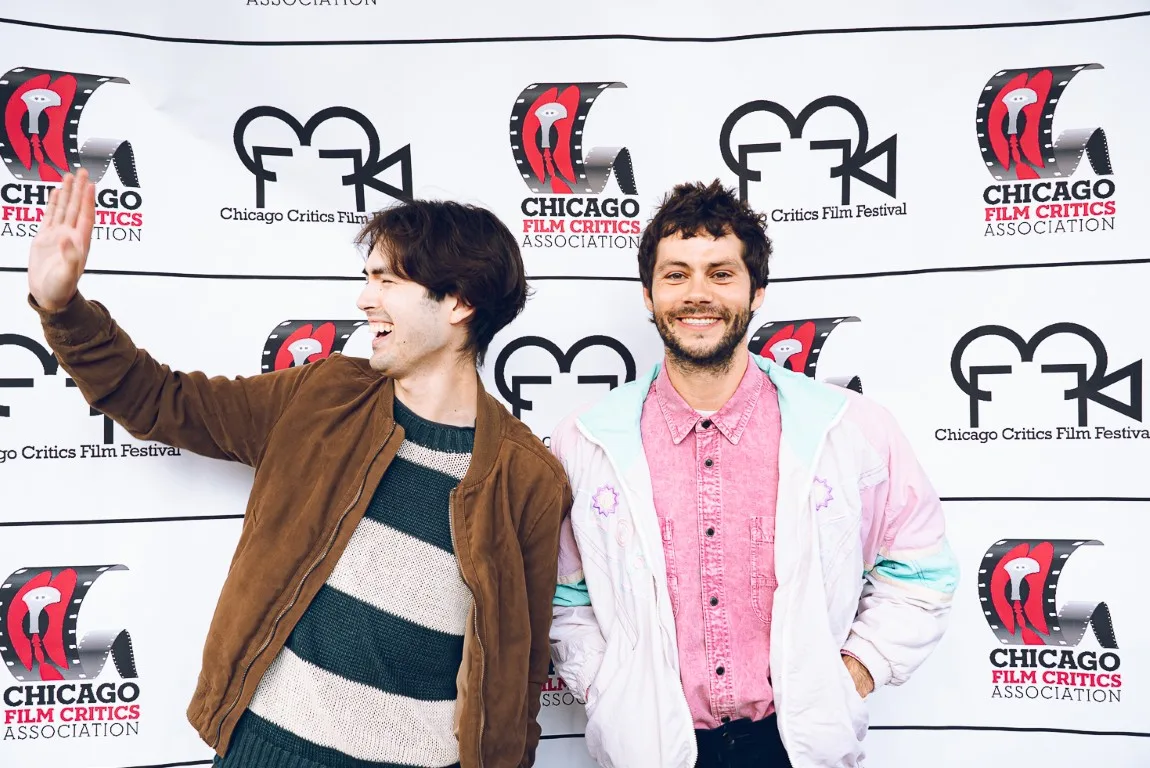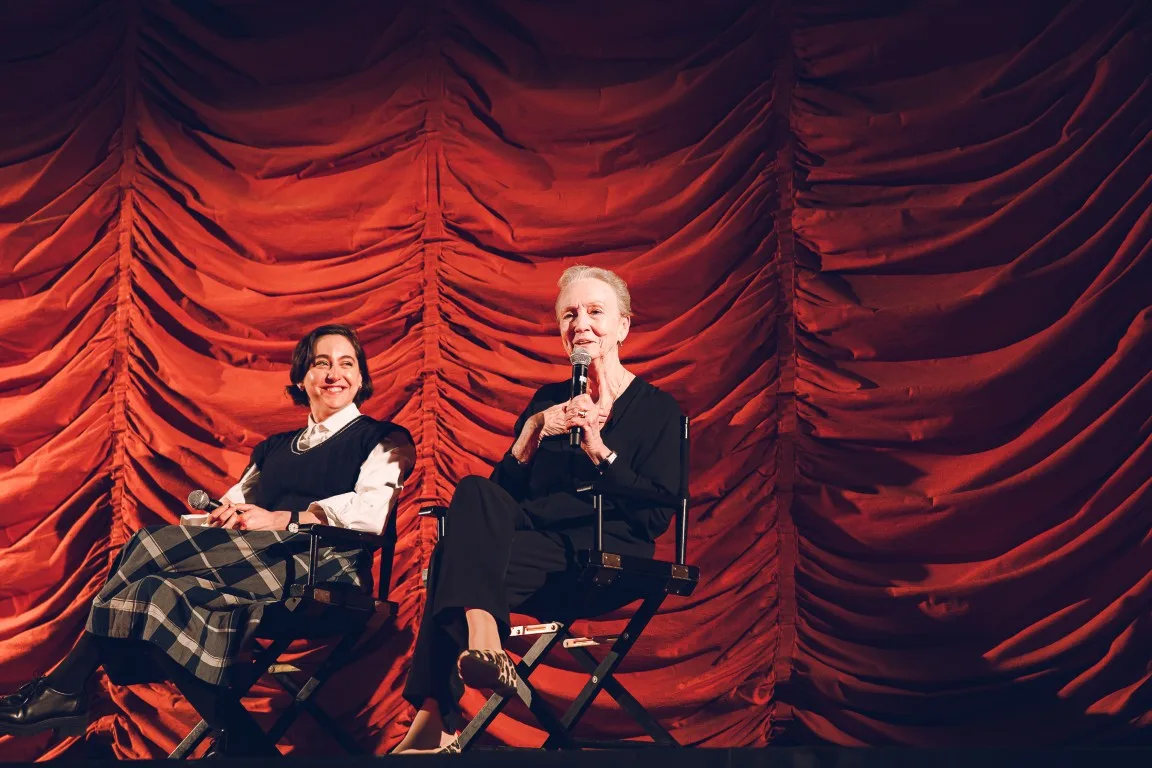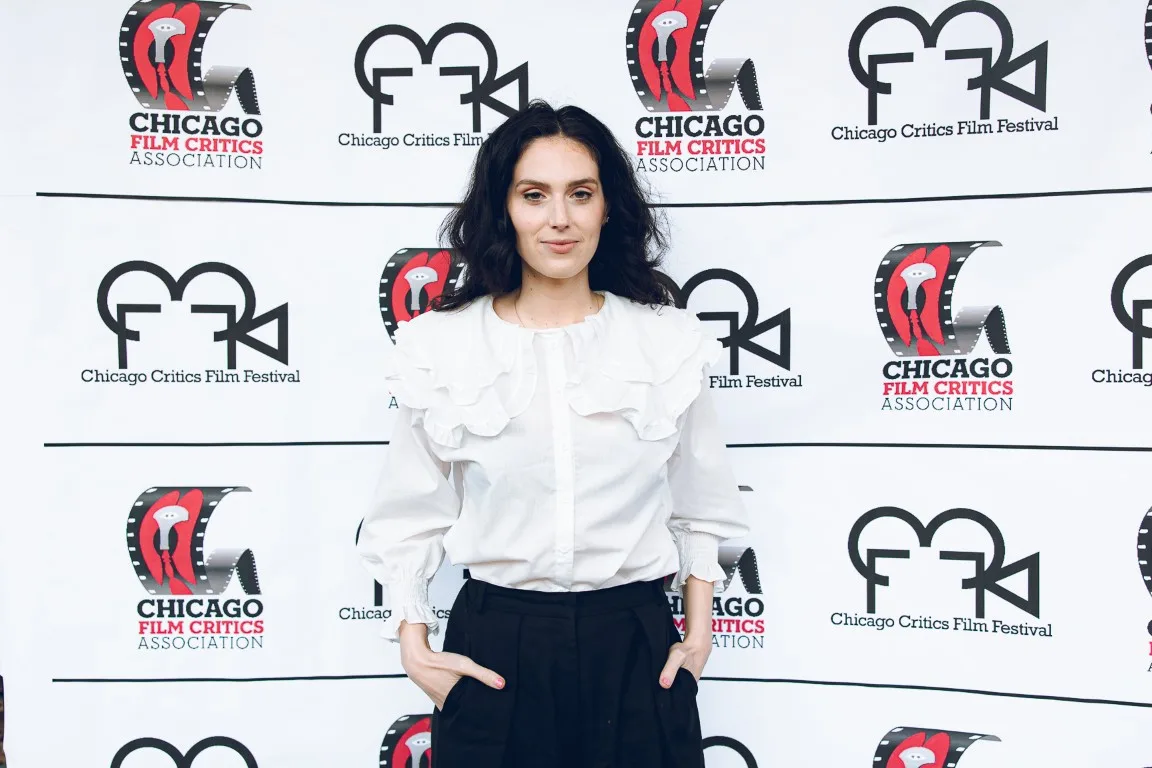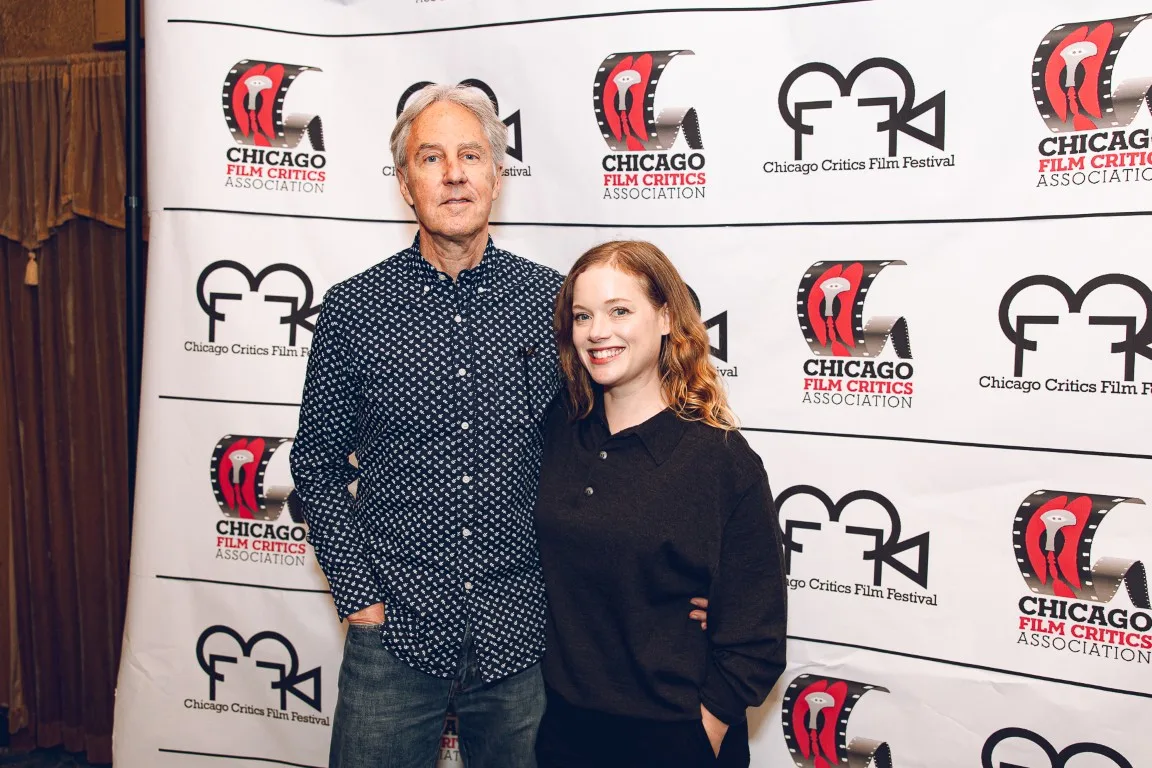Celebrating its twelfth year, the Chicago Critics Film Festival returned with a robust lineup of over two dozen films and hosted the largest number of in-person guests in its history.
On the red carpet, RogerEbert.com spoke with the talent in attendance for the opening-night title “The Baltimorons,” director Jay Duplass, stars Michael Strassner and Liz Lars, and a variety of guests for various festival selections.
“Twinless” brought director/co-star James Sweeney and Dylan O’Brien to the Music Box. Director Sarah Friedland and star Kathleen Chalfant charmed viewers ahead of their screening of “Familiar Touch.” At the same time, Northwestern graduate Eva Victor, writer, director, and star of “Sorry, Baby,” enjoyed a hometown welcome.
Finally, for the closing-night Chicago premiere of the recently acquired “A Little Prayer,” director Angus MacLachlan was joined by star Jane Levy. Other guests in attendance at the festival included director Alexander Ullom for “It Ends” and director Matthew Shear for “Fantasy Life.” Bri Klaproth, Niamh O’Neill Culhane, Jon Walkup, Elizabeth Rao, Joe Hunting, Chase Johnson, Carlos Lerma, and Philip Thompson were in attendance for their work in their respective short films.
These creatives all shared insights about the projects that they brought to the festival.
The following interview quotes have been edited and condensed for clarity.
Already destined to be a Christmas classic, Jay Duplass’ “The Baltimorons” focuses on a newly sober Cliff (Michael Strassner) who cracks a tooth on Christmas Eve. He goes to a dentist, Didi (Liz Larsen), and the two embark on a night of unexpected adventure and romance.
The story is a deeply personal one for Strassner, who shared that the film’s opening sequence mirrors a real experience of his own life, where he contemplated suicide before getting sober. “I’m grateful to be here and this film has made me realize the stuff that matters,” he shares. “Getting to work with these people has truly been the gift of a lifetime.”
He also shared how it was his mother’s birthday the day of the film’s screening, and he was thrilled to be able to share that screening with her. For Duplass, he expressed excitement for the ways people would be introduced and re-introduced to his two stars. “I think these guys are movie stars. People just don’t know it yet,” he said. Duplass notes that while “The Baltimorons” is filled with many heartfelt moments, it doesn’t shy away from the world’s cruelties and how the holidays can be an inherently isolating time for people. He and Larsen were eager to explore that bittersweet element on-screen, the way few movies set during Christmas time do. “I felt like I could just play myself for those two and a half weeks,” Larsen laughed, “I could put to screen all the ways I felt about Christmas.” Duplass likewise shared, “A big part of our movie is witnessing these two people staring down the barrel of Christmas Eve, it’s looking pretty grim. I think the movie’s central question is: “Can these people create a beautiful day together?” They know nothing about each other, and they’re so different. That’s the challenge but also the beauty of the film.”

Challenge and beauty were also themes that characterized director James Sweeney’s “Twinless,” in which he and star Dylan O’Brien play Dennis and Roman, two men who’ve both lost their twins. They meet in a bereavement support group and form an unlikely friendship. For O’Brien, it was a joy to work in such proximity with Sweeney, who also wrote and produced the film.
Despite Sweeney calling the shots, O’Brien noted that he would be open to feedback, resulting in a set that was collaborative and built on trust. “Sometimes he’d say, ‘You sounded a little too much like Dylan there and not enough like Roman.’ To which I’d say, ‘Well, you sounded a little too much like James,’” O’Brien laughed, “It goes a long way when your director is also your onscreen partner.” Sweeney shared that this trust anchored the film through its “tonal fluctuations.”
Sweeney also shared that since he was playing queer characters across projects like “Twinless” and last year’s “Ponyboi,” he worked closely with James to ensure his character was authentic but a caricature. “Sometimes when straight actors play queer characters, sometimes there can be a reticence to lean into any sort of formative femininity but for Dylan’s character … without getting too much into it, it made sense,” he shared.
The two also commented on the “gay scale” that Sweeney implemented on set, where he would tell O’Brien when playing the queer twin, “You were too straight on that.” I know that there was an article that kind of made a joke of that [scale], but that wasn’t a joke with us,” O’Brien shared. “ It helps to get that permission as an actor to dial or down when you’re making things … it helps you achieve a more authentic vision.”

Authenticity was key for director Sarah Friedland and star Kathleen Chalfant in “Familiar Touch.” Chalfant plays Ruth, an octogenarian woman who transitions to a life of assisted living as she navigates her relationship with her body, caregivers, desires, and shifting memory.
Friedland has previously described the film as a “coming of old age film,” and hoped that for those viewing, it showcased that those who age should not be pitied but celebrated in all of their dynamism. “I used that term because I wanted to push back against a narrative of decline that we usually see with stories about older adults,” Friedland shared. “There’s often this sense that narratives of older adults in the dramas we see on-screen are always in decline, slipping away, or losing themselves. I wanted to depict Ruth’s aging as a transition, and that the continuity of who she is is stronger than what is being lost.”
For Chalfant, whose career spans over five decades, she finds Hollywood’s fetishization of youth to be alarming, and she hopes a project like “Familiar Touch” can be a way for people to accept the inevitability of aging. “I’ve been very lucky, and the thing about aging is that you can intervene, but there’s no stopping you in the end. I’ve been one of those people who’s been lucky to work more the older I get. But I’m concerned about the way that people feel that they need to intervene to survive.”
Chalfant also highlighted the depiction of caregivers in the film, sharing the hope that more people who care for the elderly would do so in a way that honors their agency. “The caregivers were people who honestly recognized the humanity of the people for whom they were caring and liked that. There was the possibility of a real relationship outside the caregiving relationship.”

Eva Victor’s “Sorry, Baby” won the Rotten Tomatoes Audience Award, and it’s no surprise, given the way the film finds honest humor amidst tragedy. It tells the story of Agnes (Victor), a grad student recovering from a traumatic event. On the red carpet, Victor shared a bit about the cinematic and literary influences on the film, namely Lolita and Giovanni’s Room.
“I took a Yale course about the Great American Novel before 1945. I knew we had to read Lolita, and I was so impacted by how much I loved reading the book and how devastated I was by what the book was saying. And setting it in this grad school felt like I could see the parallels in how movies and novels function,” they shared. “There’s this Susan Sontag quote that says something about how novels and films are similar because we’re told where to look, versus a painting or a play, where you can look wherever you want. So that made an impact on me. I love all those novels and wanted this film to feel like a whole world of writing.”

Director Angus MacLachlan’s “A Little Prayer” closed out the festival with some exciting news: the film will be given a proper theatrical release later this year, after having previously been acquired by Sony Pictures Classics in 2023. The film focuses on a family patriarch, Bill (David Strathairn), who discovers that his son, David (Will Pullen), is having an affair. The film also follows Bill’s internal struggles as to how best to protect his daughter-in-law, Tammy (Jane Levy), from the affair.
As parents themselves, MacLachlan and Levy offered honest thoughts on the ways the film reshaped their thoughts around what it means to love your kids while acknowledging the ways they may hurt them and vice versa. “It’s a little terrifying,” Levy acknowledged. “I have a six-month-old baby, so I’m already thinking of the ways I may be traumatizing him.” MacLachlan hopes that while the film deals with many heavy subjects, from marital infidelity, substance abuse, and PTSD from military service, the project finds a way to take these bigger issues and personalize them. “One of the intentions is just compassion. I hope that you understand why the characters are doing what they’re doing. There’s a great quote from Jean Renoir where he says, ‘Everyone has their reasons.’ While the film deals with many political ideas, it’s not an overtly political film. I hope that by centering these ideas on fully fleshed people, the audience realizes that they can’t dismiss them but have to fully engage.”
The 2025 Chicago Critics Film Festival was held May 2–8, at the Music Box Theatre in Chicago. All photography credited to Kate Scott.
